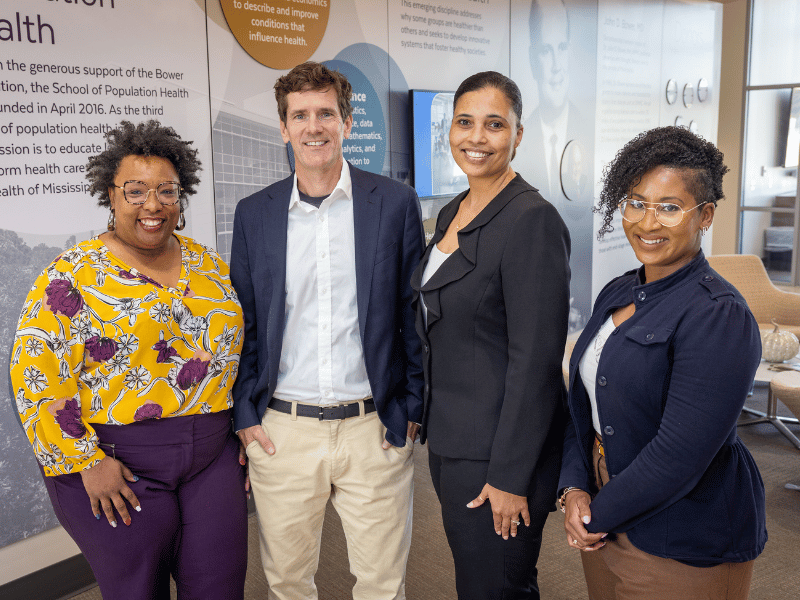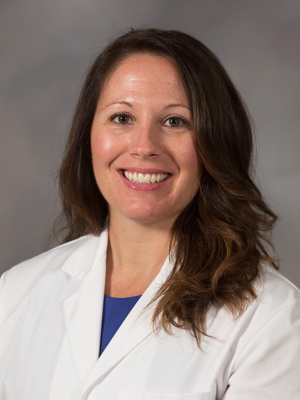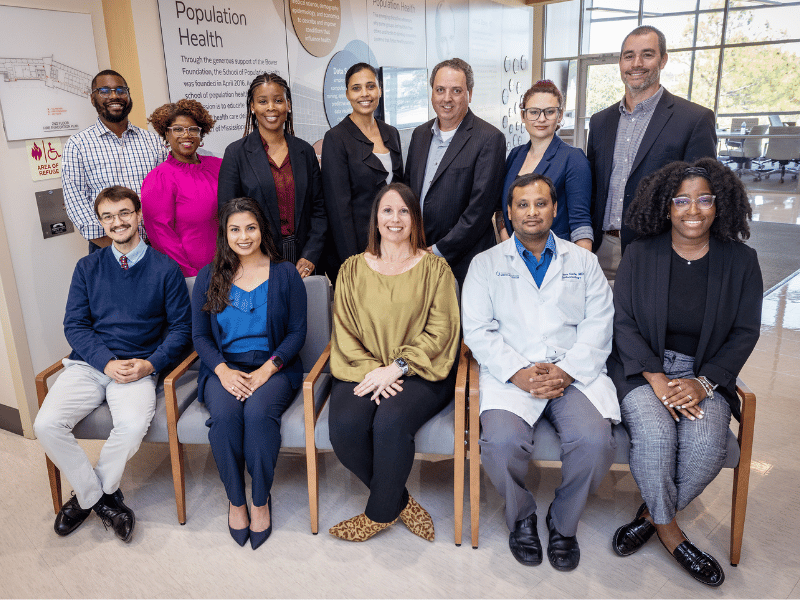- SoPH
- Bower Buzz Newsletter
- 2023
- Fall 2023
- News Articles
News Articles
- School of Population Health Home
- About Us
-
Bower Buzz Newsletter
- Bower Buzz - John D. Bower School of Population Health - Archive
- 2023
- 2024
-
2025
-
Fall 2025
-
News Articles
- Dean's welcome
- Dates and Announcements
- New faces at the School of Population Health
- Upcoming events
- eMS students present innovative capstone projects driving population health impact
- Population health science PhD students inducted into the UMMC Honors College
- Faculty and staff accomplishments
- Bidwell to Represent UMMC at Lifestyle Medicine 2025
- SOPH faculty recognized with research excellence awards
- Recent academic production
- Empowering student voices
- Celebrating connection: SOPH student and faculty events
- Introducing the Bower Center for Culinary Medicine
- Student spotlight: Tasnim Tabassum, PhD student in Population Health Science
-
News Articles
-
Summer 2025
-
News Articles
- Welcome from Dean Dobbs
- Important dates
- Welcome to our newest team members and congratulations to faculty who received promotions
- Student life in full swing: health & hangouts at SOPH
- Student and faculty academic production
- Celebrating excellence: 2025 Population Health Honors and Awards Ceremony
- Turning the tide: SOPH leads statewide effort to combat syphilis epidemic
- #2025UMMCGrad: Love of games, puzzles lead to student’s future career
- Support SOPH student initiatives in style
- Research Day 2025 highlights innovation in population health
- Distinguished Population Health Lectureship spotlights urgent advances in maternal health
- Celebrating the 2025 preventive medicine residency graduates
- Honoring a legacy: the 2024-2025 L.C. Dorsey Research Honor Society inductees
- SOPH students and faculty share solutions at Mississippi Health Disparities 2025
- BESAFE event highlights urgent STI trends and prevention strategies
- UMMC-GTEC celebrates graduation of Cohort 6 Robert Smith, MD, Scholars
-
News Articles
-
Winter 2025
-
News Articles
- Dean's welcome
- Important dates
- New hires and appointments
- Celebrating community and wellness: a recap of recent SOPH student events
- Academic production – abstracts, publications, presentations, awards, and grants
- American Board of Lifestyle Medicine taps Dr. Naser Mohammedelamien
- Introducing the 2024-25 SOPH Health Policy Fellows
- Dr. Jeannette Simino named Chair of the Department of Data Science
- Celebrating cultures and traditions at the SOPH Cultural Potluck
- Dr. Jasmine Miller-Kleinhenz honored with AACR Minority Faculty Scholar Award for groundbreaking work in cancer health disparities
- Dr. Abigail Gamble among UMMC's top grant recipients
-
News Articles
-
Fall 2025
-
2026
-
January
-
News Articles
- Dean's welcome
- Dates and announcements
- New Hires and Appointments
- Student life at SOPH: Building community beyond the classroom
- Population Health Science programs for 2026
- Recent academic production
- SOPH team wins UMMC Ethics Bowl
- Faculty spotlight – Yufeng Zheng, PhD
- New MPH pathway for physicians and medical students
- SOPH and the Mississippi Academy of Sciences
- New faces at the School of Population Health
- Hearin Foundation supports population health training for future physicians
- Celebrating 10 years of the School of Population Health
- SOPH research published in JAMA Network Open highlights urgent maternal health challenges
- Student spotlight – Angie Garrett
- Celebrating 10 years of the School of Population Health
-
News Articles
-
January
- Education and Outreach
- Faculty and Departments
- News and Events
- Prospective Students
Redirect-SOPH advances research agenda with ‘explosive growth’

The John D. Bower School of Population Health has amassed more than $16.7 million in research funding so far this year, a feat Dr. Thomas Dobbs, dean, said represents “explosive growth.”
With the 18 grants, the SOPH has “more than doubled our total funding in the past six months,” said Dobbs. “There is great interest among funders to support our work, and the quality of our researchers has engendered the necessary trust to bring in these investments.”
Grant funding is critical to all aspects of the school’s mission because it supports scholarship, education and the community health outcomes to which the SOPH is committed, Dobbs said, allowing better research opportunities for students.

Dr. Abigail Gamble, associate professor of preventive medicine, was awarded nearly $9 million in funding as principal investigator of five projects.
The Centers for Disease Control and Prevention funded the largest award: $5 million for the Mississippi Diabetes Project, which, over the next five years, will allow researchers to evaluate the implementation and effectiveness of community-driven strategies to improve diabetes care and prevention across 41 of the state’s highest-needs counties, reaching more than one million people.
“The project is anchored in health equity and community engagement and will seek to address social needs at the systems, community, familial and individual levels,” said Gamble, project principal investigator, an implementation scientist and community-based researcher.
At the systems level, MDP will provide health care coordination; at the community level, food pantries and transportation; and at the individual level, address chronic disease self-management and lifestyle modification.
Gamble is also PI of a $1.8 million, seven-year Medicaid postpartum coverage study funded through the Southern Center for Maternal Health Equity at Tulane University by the National Institutes of Health aimed at reducing preventable causes of maternal deaths and improving health for women before, during and after delivery.
“It includes a special emphasis on health disparities and Medicaid beneficiaries who typically lack access to postpartum care following high-risk pregnancies complicated by gestational diabetes and pregnancy-induced hypertensive disorders,” said Gamble.
Gamble’s Teen Mom trial, funded with a $1.6 million grant from the National Institute on Minority Health and Health Disparities, is the first known behavioral intervention study aimed at improving cardiometabolic health in pregnant Black teens through mobile health strategies coupled with peer health coaching.
“We have been impressed with Dr. Gamble's remarkable success this year,” Dobbs said. “She has been building a strong team and an impressive portfolio of work. These elements combined with a tireless work ethic have positioned her for the success we are witnessing.”

In just five months at UMMC, Dr. Mauda Monger, assistant professor of population health science, has been awarded three grants totaling more than $3 million.
Monger is co-PI with Dobbs on the school’s second-largest grant. The $2.5 million, five-year project, Enhancing STI and Sexual Health Clinic Infrastructure, a partnership between UMMC and the Mississippi State Department of Health, supports three major objectives: understanding community needs in sexual health services, building out those services to meet needs and developing innovative approaches, including telehealth, to reduce transmission rates.
Monger, who has a background in community-based organizations, academic settings and government agencies, is also PI on the Medical Monitoring Project, funded with a $450,463 MSDH grant, which seeks to provide information about clinical outcomes of HIV infection, care seeking and care utilization of people living with HIV, and transmission risk behaviors. Researchers will study 200 Mississippians living with the disease.
“Mississippi is one of 23 sites in the country that work to aid in the development of federal policies, while addressing information gaps regarding progress with linkage and retention in care and early initiation of treatment and services to include medications and social services,” said Monger. “Gaining this data also helps the state to recognize the clinical and individual burden of HIV and how we can provide ideal, culturally sensitive and appropriate care to our citizens.”
Dobbs is also PI for at least four other grants promoting sexual health and the prevention of HIV transmission, which is no coincidence.
“These are diseases that are entirely preventable and treatable,” he said. “What we think of as traditional health care has failed to turn back the HIV epidemic or the frightening surge of STD's, including syphilis. It takes public health systems to beat these diseases.
“It is our goal to support those systems that get people the services they need to stay healthy, regardless of insurance or ability to pay.”


